
ANTHROZOOS
Scope & Guideline
Pioneering Research at the Intersection of Life
Introduction
Aims and Scopes
- Human-Animal Interaction:
Research on the psychological and emotional aspects of human-animal relationships, including the benefits and impacts of companion animals on human well-being. - Animal Welfare and Ethics:
Studies addressing moral and ethical considerations regarding animal treatment, welfare policies, and the implications of human actions on animal lives. - Cultural Perspectives on Animals:
Exploration of how different cultures perceive and interact with animals, including cultural practices, beliefs, and attitudes toward various species. - Animal Behavior and Cognition:
Investigating the cognitive abilities and emotional states of animals, as well as how these influence their interactions with humans. - Socioeconomic Factors in Animal Ownership:
Analysis of how socioeconomic status affects pet ownership practices, access to animal care, and the implications for both animals and owners. - Interventions Involving Animals:
Research on the effectiveness of animal-assisted interventions in various settings, including therapy, education, and community programs. - Impact of Environmental Factors:
Examination of how environmental changes and urbanization affect animal behavior, welfare, and human-animal relationships.
Trending and Emerging
- Mental Health and Well-being:
An increasing focus on how companion animals contribute to mental health and well-being, particularly in contexts such as therapy, support for veterans, and during crises like the COVID-19 pandemic. - Cross-Cultural Studies:
Growing interest in comparative studies that explore human-animal relationships across different cultures, highlighting diverse practices and beliefs. - Animal-Assisted Interventions:
A trend towards examining the effectiveness of animal-assisted therapies and interventions, especially in healthcare and educational settings. - Societal Attitudes Toward Animals:
Research on societal attitudes and perceptions of animals, including studies on speciesism, animal rights, and public sentiment toward animal welfare. - Impact of Technology and Media:
Emerging themes related to the role of technology and social media in shaping perceptions of animals and influencing human-animal interactions.
Declining or Waning
- Traditional Animal Roles in Society:
Research examining historical or traditional roles of animals (e.g., working animals, livestock) has decreased, possibly as the journal shifts toward contemporary issues and human-animal dynamics. - Species-Specific Studies:
While still relevant, there appears to be a waning interest in studies focusing exclusively on single species without broader implications for human-animal interactions or welfare. - Animal Rights Activism:
Publications centered solely on advocacy for animal rights without a multidisciplinary approach have become less frequent, indicating a shift toward more integrative studies. - Niche Animal Studies:
Research focusing on less common pets or exotic animals has decreased, as the journal's emphasis appears to be more on commonly kept species and their interactions with humans.
Similar Journals

Thai Journal of Veterinary Medicine
Championing research for animal welfare and public health.Thai Journal of Veterinary Medicine, published by Chulalongkorn University, serves as a vital resource for researchers, practitioners, and students in the field of veterinary science. With an ISSN of 0125-6491, the journal has been providing a platform for the dissemination of original research and reviews since its inception, with a focus on advancing veterinary practice and animal health in Thailand and the broader Southeast Asian region. The journal is recognized in the Scopus database, currently ranked in the Q4 category for Veterinary (miscellaneous), reflecting its commitment to quality despite being in a highly competitive space. The scope of the journal encompasses a wide array of topics pertinent to veterinary medicine, ensuring accessibility to diverse veterinary disciplines. While the journal currently does not offer an open-access option, it remains dedicated to contributing valuable knowledge and insights to the veterinary community, supporting the improvement of animal welfare and public health initiatives in the region. As it continues to publish until 2024, the Thai Journal of Veterinary Medicine invites contributions that align with its objectives of fostering scholarly discourse and advancing veterinary research.

Revista MVZ Cordoba
Empowering researchers with accessible veterinary science insights.Revista MVZ Cordoba, an esteemed publication of UNIV CORDOBA, is a pivotal resource for researchers and practitioners in the fields of Animal Science, Zoology, and Veterinary Medicine. Established as an Open Access journal since 2000, it facilitates widespread accessibility of scholarly articles from Colombia, fostering global collaboration and knowledge dissemination. The journal has demonstrated its commitment to quality, holding Q4 quartile rankings in 2023 across various categories including Animal Science and Zoology, and Aquatic Science. Despite its current challenges in rankings, with percentiles in the lower brackets, it represents an important platform for the advancements in these disciplines, specifically catering to emerging research and insights. The journal's annual publication cycle from 2008 to 2024 ensures that it remains timely and relevant in covering contemporary issues within veterinary science and related areas. For researchers, professionals, and students, Revista MVZ Cordoba stands out as a valuable avenue for the exploration of veterinary sciences within a diverse academic landscape.
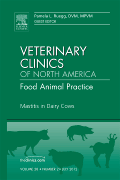
VETERINARY CLINICS OF NORTH AMERICA-FOOD ANIMAL PRACTICE
Pioneering Insights for the Future of Food Animal MedicineVETERINARY CLINICS OF NORTH AMERICA-FOOD ANIMAL PRACTICE is a premier peer-reviewed journal dedicated to advancing knowledge in the field of food animal veterinary medicine. Published by W B SAUNDERS CO-ELSEVIER INC, this journal serves as a vital resource for veterinarians, researchers, and students, facilitating the dissemination of high-quality, impactful research and reviews. With an impressive Q1 ranking in both the fields of Food Animals and Medicine, and a notable Scopus rank of 2 out of 39 in Veterinary Food Animals, the journal plays a critical role in addressing the complexities and advancements in food animal health. Although it is not an Open Access journal, subscribers have access to a wealth of articles that are pivotal to the profession. Founded in 1971, the journal continues to provide cutting-edge insights and support for effective practices in veterinary medicine through 2024 and beyond. Its commitment to excellence and relevance ensures it remains an indispensable source for the latest developments in the veterinary field.
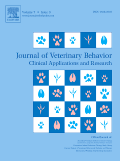
Journal of Veterinary Behavior-Clinical Applications and Research
Empowering veterinarians with cutting-edge behavioral knowledge.The Journal of Veterinary Behavior-Clinical Applications and Research, published by Elsevier Science Inc, is a premier outlet for original research and clinical studies in the field of veterinary behavior. With an ISSN of 1558-7878 and an E-ISSN of 1878-7517, this journal serves as an essential resource for veterinarians, animal behaviorists, and researchers dedicated to understanding and improving animal welfare through behavioral science. The journal holds a respectable Q2 ranking in the Veterinary (miscellaneous) category as of 2023, attesting to its significant impact in the field. Although it does not offer open access options, it fosters a community of professionals who are passionate about advancing the application of behavioral research in clinical settings. With coverage extending from 2006 to 2024, the journal aims to disseminate valuable insights that contribute to effective behavior management and intervention strategies, ultimately enhancing the relationship between animals and their caregivers.
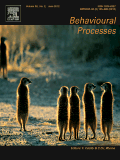
Behavioural Processes
Innovating understanding in behavioral mechanisms and applications.Behavioural Processes, published by Elsevier, is a prominent academic journal that explores the intricate dynamics of behavior across various species, providing a multidisciplinary platform for researchers in the fields of Animal Science and Zoology, Behavioral Neuroscience, and Medicine. With a rich history dating back to 1976 and expected to continue until 2024, the journal has garnered recognition, achieving a Q2 ranking in Animal Science and Zoology and securing a significant position within Scopus rankings. Behavioural Processes serves as a vital resource for advancing our understanding of behavioral mechanisms, fostering innovation in both theoretical frameworks and practical applications. Although it is not an open access journal, its rigorous peer-review process ensures high-quality publishing, making it an essential tool for professionals, researchers, and students dedicated to uncovering the complexities of behavior. For further information, please visit the journal's webpage hosted by Elsevier in Amsterdam, Netherlands.
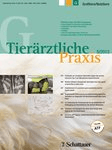
TIERAERZTLICHE PRAXIS AUSGABE GROSSTIERE NUTZTIERE
Exploring the intersection of research and practical veterinary applications.TIERAERZTLICHE PRAXIS AUSGABE GROSSTIERE NUTZTIERE is a pivotal journal in the field of veterinary science, focusing specifically on large animals and food production animals. Published by GEORG THIEME VERLAG KG, this journal has been a resource for veterinary professionals since its inception in 1996, delivering current research and practical insights to its readership through 2024. Despite its classification in the Q4 quartile for both Food Animals and Veterinary (miscellaneous) categories, the journal provides an essential platform for emerging studies, contributing to the interdisciplinary dialogue around veterinary practices. Researchers and practitioners benefit from the journal’s commitment to advancing knowledge, despite its modest rankings in Scopus where it stands at rank #150 in General Veterinary and #32 in Food Animals. While not currently offering Open Access options, the journals’ significant body of work remains an invaluable asset for those dedicated to enhancing animal health and welfare. TIERAERZTLICHE PRAXIS serves as a cornerstone for academic exploration and practical application in the veterinary field, fostering a deeper understanding of the complexities involved in animal care and management.

Revista de Investigaciones Veterinarias del Peru
Connecting Insights for Global Animal HealthRevista de Investigaciones Veterinarias del Peru, published by UNIV NACIONAL MAYOR SAN MARCOS, stands as a pivotal resource within the field of veterinary sciences. With its ISSN 1682-3419 and E-ISSN 1609-9117, this journal aims to publish innovative research contributing to the advancement of veterinary practices and animal health. Since its inception in 1999, it has fostered an academic platform for professionals and researchers alike to share findings that are crucial for understanding and improving animal welfare in Peru and beyond. Although currently positioned in the Q3 category of Veterinary (miscellaneous) and ranked #163 out of 194 in the Scopus database, the journal's commitment to quality research and open access to veterinary knowledge continues to attract submissions and readership from a diverse audience. As it moves forward into 2024, the Revista de Investigaciones Veterinarias del Peru remains dedicated to disseminating critical insights that promote evidence-based practices in the veterinary field, stimulating further research and collaboration across continents.
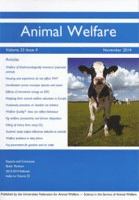
ANIMAL WELFARE
Fostering multidisciplinary dialogue on animal protection.ANIMAL WELFARE, published by Cambridge University Press, is a vital academic journal dedicated to advancing our understanding of animal ethics, welfare science, and related practices. With an ISSN of 0962-7286 and an E-ISSN of 2054-1538, the journal offers a platform for researchers and professionals to share significant findings and insights that enhance animal protection and welfare across various settings. Operating from its distinguished location in the United Kingdom, the journal boasts a commendable impact factor and is recognized in several quartile categories in 2023, including Q3 in Animal Science and Zoology, Q3 in Biochemistry, Genetics and Molecular Biology, and Q2 in Veterinary (miscellaneous). With its diverse scope, ANIMAL WELFARE plays a crucial role in influencing policy and practice while fostering multidisciplinary discourse. It is a valuable resource for anyone dedicated to improving the lives of animals and understanding the complexities involved in animal welfare research.

BMC Veterinary Research
Connecting knowledge to enhance animal care.BMC Veterinary Research, published by BMC in the United Kingdom, stands as a pivotal open-access platform dedicated to advancing the field of veterinary science since its inception in 2005. With an impressive impact factor that reflects its influential presence, this journal has achieved a remarkable ranking of #17 out of 194 in the Scopus Veterinary category, placing it in the 91st percentile among its peers. The journal serves as an essential resource for researchers, professionals, and students alike, fostering the dissemination of high-quality research and innovative practices within the veterinary and broader medical communities. With its commitment to open access, BMC Veterinary Research ensures that valuable insights are accessible to all, promoting collaboration and knowledge sharing that drive the advancement of veterinary sciences. As it continues to publish significant findings until 2024, it remains a key contributor to the contemporary discourse on animal health and welfare.

Tropical Animal Science Journal
Championing Open Access for Global Impact in Animal ScienceTropical Animal Science Journal, ISSN 2615-787X, E-ISSN 2615-790X, is an esteemed open-access journal published by the Bogor Agricultural University, Faculty of Animal Science. Launched in 2018, this journal serves as a pivotal platform for disseminating high-quality research in the fields of Animal Science, Food Animals, and Veterinary Medicine. With its significant presence in Indonesia and a commitment to scientific innovation, it has achieved a Q3 ranking in Animal Science and Zoology and Food Animals, as well as a Q2 ranking in Veterinary (miscellaneous) as of 2023. The journal also enjoys favorable Scopus rankings, placing it in the 61st percentile for General Veterinary and demonstrating its relevance and impact in the academic community. As an advocate for open-access publishing since its inception, the journal enhances accessibility to critical research findings, making it an invaluable resource for researchers, professionals, and students alike who aim to advance their knowledge and contribute to the fields of tropical animal science.